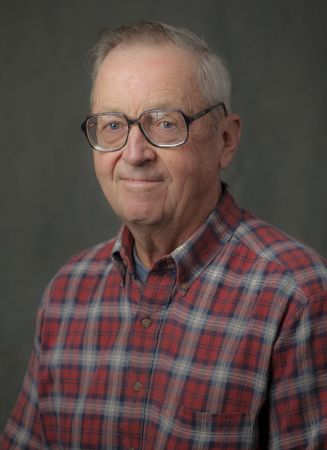Professor Steven McIntosh has been named the inaugural Zisman Family Chair in Chemical and Biomolecular Engineering in Lehigh University’s P.C. Rossin College of Engineering and Applied Science.
McIntosh, who joined Lehigh’s faculty in 2010, conducts research in the areas of catalysis, electrochemistry, materials chemistry, and reaction engineering. He was named chair of the Department of Chemical and Biomolecular Engineering department in 2021.
The Zisman Family Chair was recently established through a $2.5 million gift by Lehigh alumnus Mike Zisman ’70. Zisman has previously served on the Lehigh Board of Trustees and the Rossin College Dean’s Advisory Council. The gift was made in recognition of William L. Luyben, a longtime professor of chemical and biomolecular engineering at Lehigh, who Zisman credits with changing his life and career trajectory.
“We are delighted that the Zisman family has chosen to honor and fund Lehigh’s research and educational missions in this manner,” says Stephen P. DeWeerth, professor and dean of the Rossin College. “Endowed chairs are opportunities to support outstanding faculty members across generations of students: educators who change lives, broaden perspectives, and provide access to the tools that build tomorrow. Professors Luyben and McIntosh exemplify this ideal, and we are enormously grateful to Mike Zisman and his family for their generosity and their tireless support for Lehigh.”
President Joseph Helble, himself a graduate of Lehigh’s chemical engineering program and former student of Luyben’s, thanked Zisman for his incredible philanthropy and said the gift in honor of Luyben is proof that “what the faculty and staff do at Lehigh makes a huge difference in shaping the future.”

Recognizing the power of faculty mentorship
Following the future retirement of Professor Luyben—whom Zisman believes to be “an exemplary teacher, mentor, and distinguished researcher”—from Lehigh, the chair will be known as the William L. Luyben Chair.
“I remember how Professor Luyben pulled me aside one day and said, basically, ‘Shape up or ship out,’” he says. “It changed my life—I just woke up and thought, ‘Well, maybe I should try studying. Maybe that would make a difference.’ And I made the dean’s list after that.”
Luyben further impacted Zisman’s life and career trajectory by introducing his students to the use of computers for simulation. “I loved doing those simulations,” Zisman recalls. “It helped me realize that I really loved computer programming.”
After graduating from Lehigh with a Bachelor of Science in chemical engineering and working briefly at DuPont, Zisman went on to earn a master’s in systems engineering and a doctorate in decision sciences from the University of Pennsylvania. He was a faculty member at the Sloan School of Management at MIT until 1979 when he founded Soft-Switch, a company that, in a pre-internet era, allowed users of different computer brands the groundbreaking ability to email each other. Soft-Switch was acquired by Lotus Development Corporation in 1994, with Zisman serving as its CEO. A year later, IBM acquired Lotus, and Zisman stayed on until his retirement in 2004 as vice president of corporate strategy. In 2009, he founded Golf Genius, a cloud-based software system that helps golf professionals manage leagues, tournaments, and events.
“I often tell people I'm a product of my education,” Zisman says. “I got an incredible grounding at Lehigh and a great foundation in analytical, critical thinking. But I think Professor Luyben had more impact on my life than anybody. And I’m grateful.”
About Professor Luyben
Professor Luyben has been teaching and researching at Lehigh since 1967 and has written 13 textbooks, advised 35 PhD candidates, and helped educate countless Lehigh chemical engineers. His work focuses on process control (or “cruise control for chemical plants,” as he has described it) and the design of chemical plants.

“I thank Mike and the Zisman family for this honor,” Luyben says. “I like the expression, ‘I touch the future—I teach.’ I think that’s applicable in Mike’s case. I also want to thank Lehigh for providing the faculty with students we can challenge and encourage.”
Luyben’s interest in chemical engineering began in a high school chemistry class, when he felt he was “solving real problems.” This interest led him to Penn State, where he earned a Bachelor of Science, and then to University of Delaware, where he earned his PhD. Prior to joining the Lehigh faculty, Luyben worked five years for Exxon in New Jersey and in Iran, and three years for DuPont in Delaware, which gave him broad industrial experience.
“I learned petroleum processing by working in two large refineries and chemical manufacturing by working on the design and operation of several large chemical plants,” he says. “It was an excellent experience, and it provided me with invaluable knowledge that I have used in teaching the practical aspects of chemical engineering.”
Luyben’s first book, Process Modeling, Simulation, and Control for Chemical Engineers, published in 1973, was the first book to discuss all three of those subjects in one volume. His most recent book, Principles and Case Studies of Simultaneous Design, outlines the designs of industrial chemical processes and presents basic principles of both steady-state design and plant-wide control.
Luyben has also coauthored two books—Essentials of Process Control and Plantwide Process Control—with his son, Michael, who earned a BS in chemical engineering from Lehigh in 1987.
“Not too many professors collaborate on books and papers with their sons,” he says.
For more about Professor Luyben, visit engineering.lehigh.edu/william-l-luyben.

About Professor McIntosh
McIntosh, who has served as department chair since July 2021, joined the Rossin College faculty as an assistant professor in 2010. He was promoted to the rank of associate professor in 2013 and full professor in 2018. His research interests cross disciplines and encompass the fields of catalysis, electrochemistry, materials chemistry, and reaction engineering through projects centered on the development of novel materials and electrochemical systems.
McIntosh recently served as associate director of Lehigh’s Institute for Functional Materials and Devices (I-FMD), a hub for interdisciplinary research that fosters innovation around materials and devices that underpin many of society’s greatest challenges.
“It’s an exciting time to be a Lehigh chemical and biomolecular engineer as we expand undergraduate student experiential learning opportunities, innovate and expand graduate education, and demonstrate the wide scope of the discipline by leading interdisciplinary research thrusts in areas as diverse as wound healing and sustainable materials for energy applications,” he says.
McIntosh’s research is funded by the National Science Foundation, and his work has been published in leading journals, including Science, Green Chemistry, Nanoscale, and the Journal of Materials Chemistry A. He was elected as a Fellow of the Royal Society of Chemistry in 2016 and serves as associate editor for the journal RSC Advances. He holds two U.S. patents.
McIntosh earned degrees in chemical engineering from the University of Pennsylvania (MS and PhD) and the University of Edinburgh (B.Eng.) in the United Kingdom. He was a Marie Curie Intra-European Postdoctoral Fellow at the University of Twente (The Netherlands).
For more about Professor McIntosh, visit engineering.lehigh.edu/steven-mcintosh.

